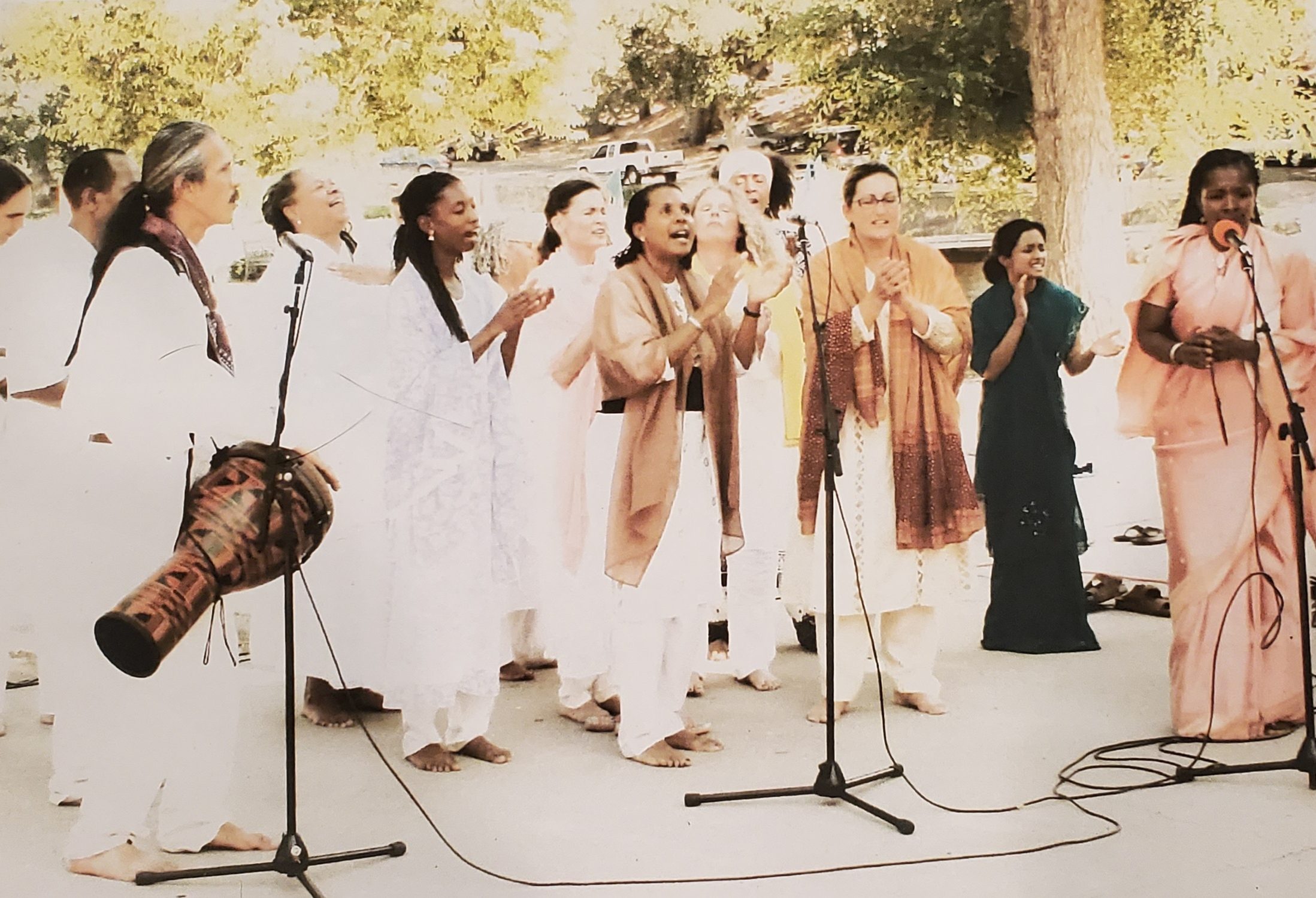
On this fine day, Lord Rama said,
"Great musical freedom is obtained through the sound vibrations of the pranava Om resonating throughout the universe and within the sacred regions of the heart. This sound liberates the spirit and elevates the soul unto the celestial realms of Consciousness-light.
Those who chant My Names know that their power in prayer, songs of praise, and japa envelops the spirit in infinite peace and immeasurable bliss."
–Divine Revelations, June 8, 1974, pg. 74
Devotional Music of Swamini Turiyasangitananda
Swamini once told us, “The highest purpose of music is as an offering to God”.” In order to offer music to the ever-present Lord who resides in all, one must bypass egotism to express one’s love for God, flowing from the devotee’s heart and accepted by God.
From Endless Wisdom: As it was in the beginning, let your music forevermore be an expression of My Divinity in a sound incarnation of Myself, a Nadabrahma. For, eternally, divine music shall always be the sound of peace, the sound of love, the sound of life, and the sound of bliss.
Swamini began bhajans playing the organ. I don’t think she knew which bhajan she was going to play. She would start with a soft and slow intro until the bhajan presented itself. Then the song came to life, and the voices filled the room. After some time, she might change the tempo, or the key, or even change the melody and the congregation would catch the new riff and the atmosphere in the room would crescendo into a celestial choir, taking each person’s experience to higher and higher realms. This would happen at least once, but often more times when Swamini played the organ.
Krishnapriya Brack
Initiated Student of
Swamini Turiyasangitananda

Devotional Chanting during Ashram Holy Day Program
The Basics of Bhajan (Devotional Chanting)
The Sanskrit word ‘Bhaja’ has as one of its’ meanings, worship. To sing a ‘Bhajan” is to worship devotionally in the form of song. Music and singing provide the most subtle expressions of our existence. They give us an outlet for our deepest and most divine inner yearning, a connection to God.
You do not have to be musically trained or highly educated to sing a bhajan. All that is needed to begin is simplicity. The benefit will be a quiet mind and an open heart. It is interesting to note that scientists have begun to study the effects of chanting with studies finding ‘that chanting can reduce stress, anxiety, and depressive symptoms as well as increase positive mood, feelings of relaxation and focused attention. - Gemma Perry PhD
Anyone can sing a bhajan. It is the simple repetition of the names of God. In the Hindu tradition there are many names for God, you may have heard the Hare Krishna chant made famous by the Iscon Society, followers of Prabhupada Bhaktivedanta. He was one of the first gurus from India professing that chanting the name of God and dancing joyously was akin to prayer.
Singing bhajans can bring a deep feeling of inner peace and a sense of connection to all of God’s creation. A slowly sung heartfelt bhajan will bring tears to your eyes. A bhajan sung in an upbeat tempo can make you feel an uplifted exaltation, even ecstasy. That was often the experience of chanting with our Guru, Swamini Turiyasangitananda, or as we affectionately called her, Swamini.
Swamini introduced us to the supreme bliss of chanting the names of the Lord over and over, giving oneself over entirely to this heart opening experience of directly calling to the Supreme. You are no longer the mind or the ego,
Ramiya Aust
Initiated Student of
Swamini Turiyasangitananda
